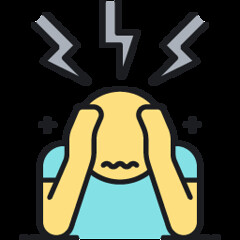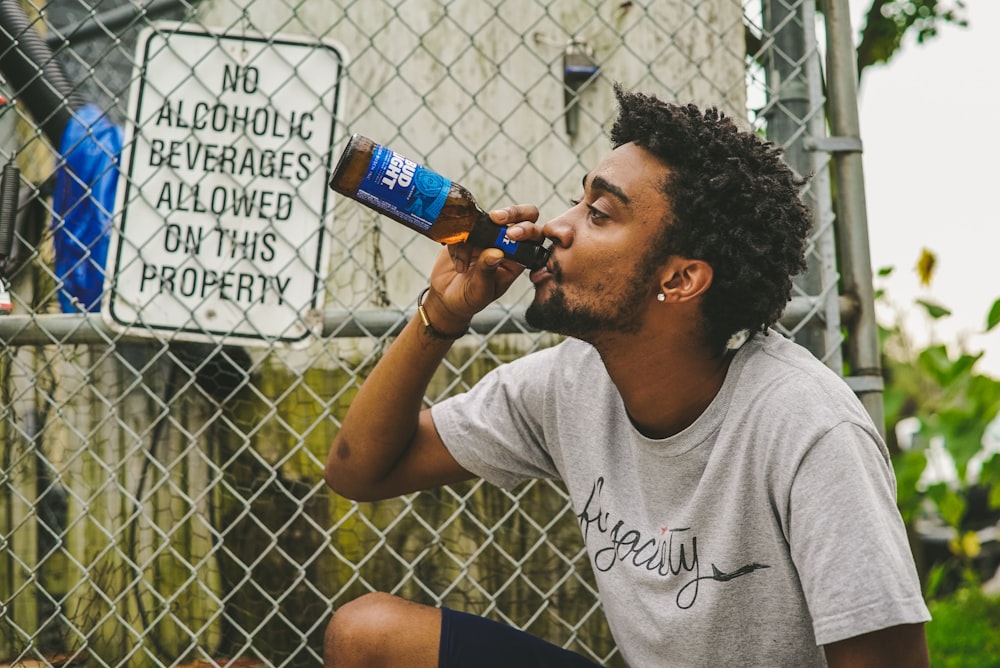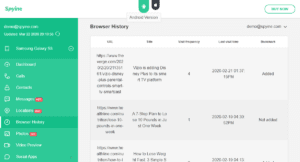
People with anxiety disorders often feel anxious or nervous before and during social interactions. But, which personality pattern characterizes most forms of anxiety disorders? Sometimes, they experience panic that prevents them from leaving their house or participating in daily activities. People with generalized anxiety disorder, phobias, and obsessive-compulsive disorder often feel worried and tense much of the time.
Many different personality patterns may lead to anxiety. Keep reading to learn more about the different types of anxiety, as well as the characteristics of your anxious personality. You may be unaware that your anxiety is a distinct personality trait.
If you struggle with anxiety, it’s worth understanding why your anxious personality makes you feel the way that you do.
Contents
Are personality disorders anxiety disorders?
Anxiety is not a personality disorder, but it may be a symptom of one. As stated in the introduction, people with anxiety disorders often feel anxious or nervous before and during social interactions.
Sometimes they experience panic that prevents them from leaving their house or participating in daily activities. People with generalized anxiety disorder, phobias, and obsessive-compulsive disorder often feel worried and tense much of the time.
Many different personality patterns may lead to anxiety, however, what is most important is understanding your individual personality pattern. If you struggle with anxiety, it’s worth understanding why your anxious personality makes you feel the way that you do.
Anxiety can seem like it’s part of who you are when in fact it’s a result of other factors or personality patterns such as:
- Sensitivity to threat (You see danger where there is none)
- Insecurity (You don’t think highly of yourself)
- Low self-confidence (You don’t think you can handle life’s challenges)
- Feeling unsupported by others (This could mean feeling alone without support)
- Anxious coping style (You react to situations with fear/uncertainty)
What are the 10 most common personality disorders?
The following are the 10 common types of personality disorders:
- Obsessive-compulsive
- Paranoid
- Schizoid
- Schizotypal
- Antisocial
- Avoidant
- Borderline
- Dependent
- Histrionic, and
- Narcissistic personality disorder
Understanding the Different Types of Anxious Personality
There are many different types of anxious personalities.
- One type is an antisocial personality disorder, or ASPD. People with this personality type have a pattern of disregard for the rights and feelings of others and may have difficulty maintaining relationships.
- Another type is a borderline personality disorder, which is also known as BPD. People with this personality type experience unstable moods and emotions that can lead to impulsive actions (including suicide attempts). They feel desperate for love and often have difficulties managing their anger, depression, anxiety, and other strong feelings.
- Another type is a histrionic personality disorder. People with this personality type often act in a dramatic, emotional way to get the attention that they crave from others.
- The last common type is Narcissistic Personality Disorder. These people often show arrogant behavior or believe themselves to be superior to others in some way (and don’t care about anyone else’s opinion). They might become easily angered if someone criticizes them or doesn’t give them the praise they desire.
- The final type is anxious personality disorder where people feel excessive nervousness before social interactions which can lead to panic attacks during these interactions or when not interacting with people at all.

What to expect if you have a “Negative” personality type
If you have a “negative” personality type, you tend to be anxious and negative during the day. This means that you’re often worried about things going wrong or bad. People with this personality type are more likely to have an anxiety disorder.
Negative people may have an obsessive-compulsive disorder, generalized anxiety disorder, or social phobia. Obsessive-compulsive disorder is characterized by unwanted thoughts or repetitive behaviors; some people are so obsessed with being perfect that they can’t complete tasks like washing their hands because they don’t want to do anything out of order.
Generalized anxiety disorder is characterized by a constant worry about things going wrong in your life — it affects around six million American adults every year. Social phobia is the fear of being judged negatively in social settings.
What to expect if you have a “Try Hard” personality type
People with a “try hard” personality type are looked at favorably in society and are usually well-liked. They are often industrious, ambitious, and goal-oriented individuals with high expectations for themselves.
Anxious people who have a try-hard personality type may experience more panic attacks related to their behavior than other anxious people. For example, they may feel embarrassed if they can’t meet their own goals or they might feel like they need to be perfect when they’re not.
Anxious people who have a try-hard personality type may be perfectionists, which can lead them to become paralyzed by fear that they’ll never do anything right or that something bad will happen.
As a result, these types of personalities often suffer from agoraphobia–a fear or anxiety of being in public places where escape is difficult (for example, on the streets).
If you identify as having a “try hard” personality type and are experiencing symptoms of anxiety, it’s important to talk to your doctor about how you can overcome those feelings so you can live a healthy life.
What to expect if you have a “Careful” personality type
People with a “careful” personality type are often introverted. They may be hesitant to take risks, and they might be more sensitive to criticism. They tend to focus on the negative aspects of their lives and may worry excessively about mistakes or missing deadlines.
If you have a “careful” personality type, it’s important that you understand how these traits contribute to your anxiety. For example, people with this personality type tend to feel anxious in social situations.
It could be because they fear being judged by others or because they’re afraid of what other people think of them. You might also experience panic when you’re in public settings or have to do something new and unfamiliar — you may feel like everyone is watching you.
Avoiding social interactions can help you avoid some anxiety triggers, but it won’t solve the root cause of your anxiety. In order for your anxiety to go away, it’s important that you challenge your fears rather than avoid them altogether.
What to expect if you have an “Anxious” personality type
If you look at the chart below, you will notice that people with an anxious personality are often shy, insecure, and feel they need to be perfect. People with anxious personality traits also have a pessimistic outlook, are sensitive to criticism or disapproval, and feel nervous in new situations.
People with anxious personalities often experience feelings of fear without any logical reason. They may worry excessively about things like the future or what other people think of them. This can result in intense feelings of tension or panic.
Overall, if you have an anxious personality type, you will likely have strong emotions and sensitivities that make it difficult for you to cope with your emotions in social settings.
In order for this personality type to thrive in social settings, it’s important to understand why your anxiety is a distinct personality trait as well as how to work through it so that your anxiousness doesn’t get in the way of your day-to-day life!

Causes of personality disorder
There are many reasons why different personality patterns lead to anxiety. It often starts in childhood, when a child grows up with abusive or unstable family life. Some people who have been diagnosed with childhood conduct disorder may also be at risk for developing personality disorders.
For some people, anxiety is a result of variations in brain chemistry and structure. Your mental health can affect how you handle stress, which can lead to an anxious personality.
When you experience anxiety, your body will release chemicals like cortisol and adrenaline that can cause the symptoms of anxiety or panic attacks.
Anxiety disorders are often related to a person’s environment, relationships and genetics. If you suffer from any type of anxiety disorder, it’s worth understanding why your anxious personality makes you feel the way that you do.
Borderline Personality and Anxiety
Individuals with borderline personality disorder are likely to also have anxiety. This is because people with borderline personality disorder experience intense feelings that may come in waves and can be difficult to control.
They feel insecure, angry, and empty. These emotions can lead to frightening thoughts of suicide or self-harm. Those with a borderline personality disorder may have an anxious personality, but they also have other symptoms that are not seen as often when someone has a typical anxiety disorder.
An individual who has a borderline personality is more likely to:
- Self-harm or think about suicide.
- Engage in risky behavior like unprotected sex or drug use.
- Have mood swings or make sudden decisions without any warning signs or explanation–for example, ending a long-term relationship out of nowhere.
How Extroversion and Neuroticism Influence Anxiety
Extroversion and neuroticism are two personality traits that may influence anxiety. Extroverted people enjoy being around other people. They find it easy to make friends and like seeking out new social experiences.
This can create a heightened sense of fear for extroverts who are also anxious. Neurotic people, on the other hand, tend to worry more often than others. They may worry about whether they’re meeting their standards or overcoming challenges in their life.
Chances are you’re an extrovert if you have:
- A need to feel connected to others
- A desire to be liked by everyone
- Talkative tendencies
- A large group of friends
- The inability to spend time alone
You may be neurotic if you experience:
- High levels of stress and anxiety in day-to-day life
- Sense of worthlessness
- Constant self-doubt
- Fear of failure
Tips for Coping With Your Anxious Personality
An anxious personality is a challenging condition that can be hard to live with. If you are struggling with your anxious personality, it’s worth trying some of these tips for coping.
- Identify your triggers: What makes you feel more anxious? Are there any specific situations that cause worry? Understanding when and why you are feeling most nervous will help to make coping easier.
- Accept the feeling: It’s important to remember that an anxious personality is not something that you should be ashamed of. Instead, learn how to harness it in a healthy way so it doesn’t control your life.
- Avoid unnecessary risks: When you have an anxious personality, taking unnecessary risks can lead to even more anxiety and stress. Make sure to avoid anything that may trigger intense feelings of worry or panic throughout the day.
- Exercise regularly: A regular exercise routine can help regulate feelings of anxiety by releasing endorphins and reducing levels of depression. Find an activity that works for you–whether it’s a daily workout or boxing class–and stick with it!
What personality types are more likely to have anxiety?
It’s important to remember that not all anxiety is bad, and it can be a useful trait in certain situations. For example, creative people are more likely to experience anxiety than others due to the high level of uncertainty they experience when trying to come up with new ideas.
There are several personality disorders that can lead to anxiety. For example, the panic disorder tends to be high in neuroticism, agoraphobia may be due to neuroticism in addition to low extraversion or either. Introverts are more likely to suffer from clinical depression as compared to extroverts.
While anxiety is a natural response in some instances, it can also lead to debilitating mental and physical health concerns if anxiety is left untreated.
If you’re constantly feeling anxious, worried, or tense much of the time, it may be worth talking with a doctor about your anxious personality pattern or visiting the Anxiety and Depression Association of America for more information on treatment options.
What are the 3 types of personality disorders?
There are three clusters of personality disorders:
- Cluster A includes paranoid (delusional) personality disorder, schizoid personality disorder, and schizotypal personality disorder. Cluster A personality disorders are characterized by odd or eccentric thinking or behavior including schizoid personality disorder, schizotypal personality disorder, and paranoid personality disorder.
- Cluster B includes antisocial (psychopathic) personality disorder, borderline (emotionally unstable) personality disorder, histrionic (excessively emotional) personality disorder, and narcissistic (manipulative) personality disorder. Cluster B personality disorders are characterized by dramatic, emotional, or erratic thinking or behavior including borderline personality disorder, histrionic personality disorder, and narcissistic personality disorder.
- Cluster C includes avoidant (shy or timid) personality disorder, dependent (needs constant reassurance) personality disorder, and obsessive-compulsive (overconscientious) personality disorder.
What are cluster C personality disorders?
People with anxious traits generally experience fear, worry, and anxiety, but they’re not limited to just one type of anxiety. The three main clusters are labeled A, B, and C. Cluster C personality disorders are characterized by anxious, fearful thinking or behavior including avoidant personality disorder, dependent personality disorder, and obsessive-compulsive personality disorder.
Is Type A personalities more prone to anxiety?
Yes, type A personalities are more likely to develop stress-related illnesses such as anxiety than other types of personalities. Type A personalities are more likely to develop stress-related illnesses than other types of personalities.
They experience a lot of pressure to be successful and put a lot of time and effort into their work, which often leads to burnout.
Stress-related illnesses can include anxiety and depression, both of which have symptoms like constant worry, feeling restless all the time, a lack of interest in activities you once enjoyed, and difficulty concentrating on anything for more than a few minutes.
Is Type A personality introvert or extrovert?
Type A personality is not the sole purview of extroverts. Type A personalities are competitive, ambitious, and have a strong need to be in control. They also often worry about their performance and take on more than they can handle.
Type A personalities are typically extroverted, but introverted people can also be Type As. Introverts with Type A personality traits tend to work hard and push themselves while simultaneously feeling that they’re not performing well enough. The difference between introverts and extroverts with Type A personality traits is that an introvert may feel everything internally while extroverts may try to externalize their feelings.
In both cases, these people usually feel anxious or stressed when they’re not performing at an acceptable level or achieving their goals. This anxiety leads them to take on more tasks in order to avoid the anxiety associated with not meeting expectations.
The result? People with Type A personality traits feel stressed or anxious all of the time, which can lead to burnout or other mental health issues like depression or substance abuse disorders.
Take-away message
Avoidant, dependent, obsessive-compulsive, and paranoid behaviors are some of the many personality patterns that lead to anxiety. One of the most common personality patterns that lead to anxiety is a dependent personality.
People with this pattern often have difficulty making decisions or finishing tasks on their own, and are often too passive or shy. The way they get along with others is often not good, and they can feel like they need others to take care of them.
Anxious personalities often also exhibit obsessive-compulsive behaviors. They may hoard items or check the locks multiple times before leaving the house. They may even organize and clean compulsively in order to feel in control. Furthermore, people with an anxious personality may show avoidant traits.
This means they try to avoid social interactions, work responsibilities, or other activities that make them uncomfortable in any way. Avoidant personalities are typically comfortable being alone and have few friends outside of their family members or spouse. Paranoid personalities also lead to an anxious state of mind because they tend to be mistrustful and suspicious of other people’s motives.
FAQs
What’s the difference between anxiety disorder and stress?
Stress is a normal part of life. You may feel stressed after work, at school, or during an intense activity like running a marathon. Anxiety disorder on the other hand is an intense feeling that is difficult to control. It can be triggered by many different thoughts and sensations, including worry about your health or work obligations. Often people with anxiety disorders will not experience stress in the same way as someone without anxiety. People with anxiety disorders often need reassurance that they are doing well, which can cause them to feel more anxious.
A person who experiences generalized anxiety disorder may struggle with high levels of tension on a regular basis. They might even struggle with panic attacks in public settings. A person who has obsessive-compulsive disorder might experience compulsions that take up a lot of their time and energy, such as excessive hand washing or checking locks repeatedly throughout the day. There are many different types of personality patterns that can lead to anxiety disorders, so it’s important for you to understand your anxious personality before jumping to conclusions about what type you have.
Image sources: Freepik and flickr

